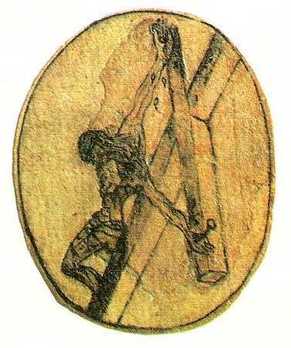
Of course, it may well be that Christianity has done itself no favours over the last few years (perhaps even as many as the last 300 years) by the way in which it has presented itself. The way in which Christianity has appeared so confident and certain in its beliefs has turned many people off. This apparent absolute certainty, and lack of humility, is the very antithesis of mysticism, which lays an emphasis on seeking after the unknowable, glimpsing the eternal and waiting in stillness for an awakening of the Spirit within us. So much do we affirm what we believe that we have lost the sense of what we do not know about God, about the life of the Spirit or even about ourselves.
In fact, there is a type of strident Christianity today which does not permit us to doubt, or even to express uncertainty or any sort of hesitancy about what we can know of God or his plans for the world. Such an approach to the divine, it seems to me, limits God and restricts the ways in which we can know him. It is probably the great heresy of our time; it devalues God and denies him the right to be God; it is us taking control of God.
Doubt is, I think, essential to faith. It seems to me to be impossible to believe without doubt. Those who profess a Christian faith may well believe many things, but humility demands a reticence in speaking of anything that we know with absolute certainty. I know many things - that the sun will rise tomorrow, that one day I will die, that if I hit my thumb with a hammer it will hurt. These are not matters for faith and admit of no doubt at all. But my belief that Jesus is God’s Son, or that God loves me, or that it was God that called me into the ordained ministry, all of these and many more things besides lie in the realm of faith. I might believe them to be true but I cannot prove them to be true. And there are moments in my life when I am not totally sure that they are true. I do not know these things in the way that I know those other things, such as the sun rising daily.
To acknowledge this sort of doubt is not to say that faith or belief has no value, or that the things we believe but can never be sure of are unreal or non-existent. It is not to say that our religion is built on a lie. All that it says is that what we believe is ultimately beyond our knowing. Our experience of the divine is, by its very nature, a subjective experience. What I might experience as revealing God another person might experience as something very different. I might see God at work in a kindness shown to me by someone else, but you might simply experience that kindness as a loving act by another human being - and we might both be right! I don’t need there to be a God for that person to be kind, but because of my faith I see human kindness as revealing the love of God. Loving acts of one person to another show me what God’s love is like so I see God at work in such moments.
It is here that the Christian mystic operates - in those areas where we can never be quite sure that God is working. Mystics over the centuries have written widely about how they have discovered God. People like John of the Cross, Julian of Norwich, Thomas a Kempis, the author of the cloud of Unknowing or, more recently Thomas Merton or Simone Weil all speak of coming to a knowledge of God having passed through deep doubts and uncertainties - and some warn against the path of the mystic for Christians who do not have the time or the faith to grapple with the “cloud of unknowing” or the “dark night of the soul.”
To be sure it is easier to accept the tenets of then Christian faith without question than it is to struggle with the uncertainty, and many in the church today seem to believe that faith should be easy and so some churches “package” the gospel so that it is simple to accept. But if we want truly to know God we need to deal with the questions, the doubt and the uncertainty. The Christian mystics have shown us that faith is indeed possible in the face of doubt and have all come to a deep faith along a path of sensing their separation from God and profound doubt about his presence with them.
If you’re interested in finding out more about Christian mystics take a look at this blog: Christian Mystics

 RSS Feed
RSS Feed

